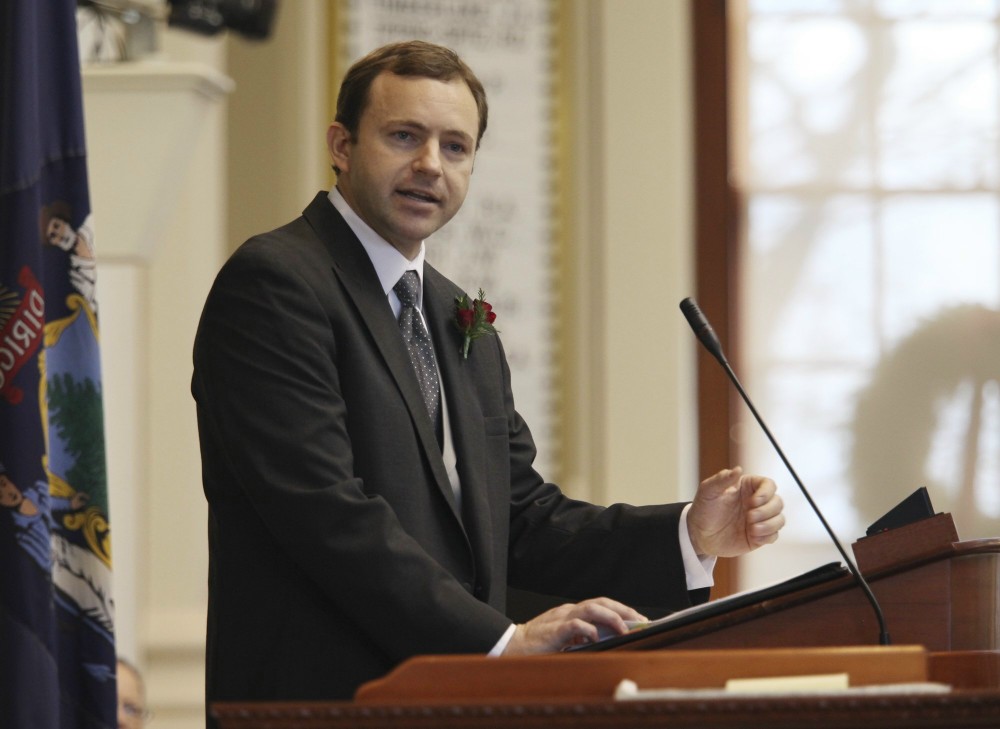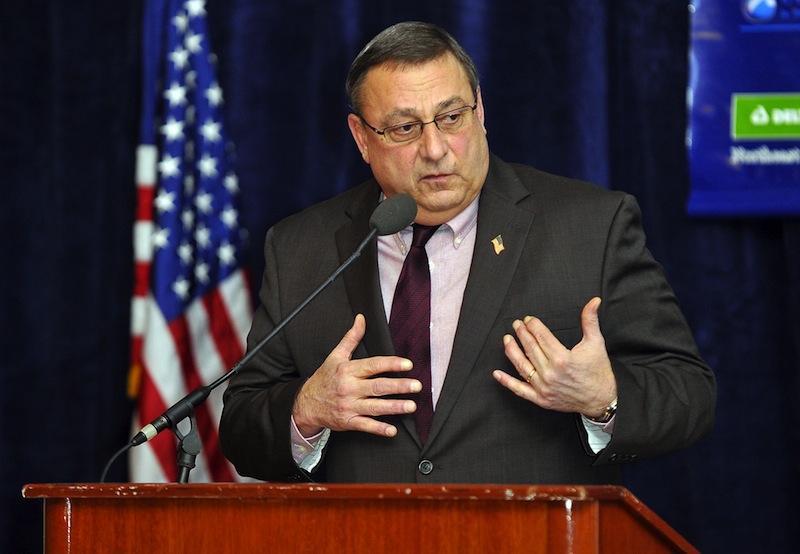âªAUGUSTA – State lawmakers continued their war of words Thursday over Democrats’ desire to expand Maine’s health insurance program for the poor and Republicans’ support for Gov. Paul LePage’s plan to pay off the state’s hospital debt.
The parties held dueling press conferences at the State House a day after Democratic leaders moved to join one of their highest priorities — expanding Medicaid to cover an additional 60,000 Mainers — with the Republican plan to pay the state’s $181 million share of back payments to Maine’s 39 hospitals.
The conflict mirrors debates that have occurred in other state legislatures over expanding Medicaid through the federal Affordable Care Act. The issue has highlighted entrenched ideologies and political positions on the federal health care law and one of its pillars, Medicaid, the publicly funded health insurance program for low-income Americans.
In Maine, Democratic leaders have insisted that expansion be approved in conjunction with LePage’s hospital payback. The pairing, announced in late April and advanced through committee votes this week, sets up a showdown between Democrats, who have majorities in the Legislature, and LePage and Republican lawmakers.
Senate President Justin Alfond, D-Portland, and House Speaker Mark Eves, D-North Berwick, said it is necessary and practical to combine the two plans.
Alfond said “lives are on the line,” noting that about Maine 10,000 residents could lose Medicaid coverage by January if the state doesn’t accept federal dollars this year.
Tom Ptacek, a Navy veteran from Portland, spoke at the Democrats’ press conference. He said he relies on MaineCare, the state’s Medicaid program, for health care coverage that’s not included in his veteran’s benefits.
Eves said packaging the proposals would reduce the costs for hospitals of providing charity while simultaneously erasing the state’s debt. “To do one without the other would leave the job half done,” he said.
Maine Hospitals paid an estimated $450 million in charity and bad-debt care last year.
Republicans vowed to oppose the combined measure, calling it a political trick that attaches a divisive issue, Medicaid expansion, to a hospital debt proposal that enjoys bipartisan support.
Rep. Kenneth Fredette, R-Newport, the House minority leader, called the Democratic plan “arrogant,” saying the state should proceed cautiously with Medicaid expansion. “Expansion is not free,” he said.
The federal government would pay 100 percent of the cost of the expansion from 2014 to 2016. In subsequent years, reimbursements would decline gradually to 90 percent of the cost, with the state paying the rest.
Critics say that banking on a continued 90 percent federal reimbursement is unwise because of ongoing deficit problems.
The Medicaid expansion would cover “able-bodied” parents, and adults who have no children and earn as much as 133 percent of the federal poverty level — just over $20,500 a year for a two-person household.
Republicans said the Democratic plan jeopardizes a bipartisan agreement to pay the hospitals and, with that, construction jobs associated with hospital expansion projects. Construction workers from Cianbro and Pike Industries stood behind Republican lawmakers during their press conference.
Jim Hanley, a worker for Pike Industries and a member of the Associated General Contractors of Maine, spoke briefly about the drop-off in construction jobs. He urged lawmakers to pass the hospital payback plan, and said he hopes the governor will release $104 million in voter-approved bonds to initiate transportation and infrastructure projects.
LePage, who has final authority to initiate the bonds, has said he won’t authorize the borrowing until the Legislature approves his hospital plan.
Democrats have criticized the governor’s ultimatum linking bonds and the hospital payments, saying he is holding the Maine economy hostage. On Thursday, Republicans and LePage leveled an identical charge at Democrats for linking the hospital debt to Medicaid.
“There is no connection between paying an overdue (hospital) bill left on my desk when I took office and increasing welfare (Medicaid),” LePage said in a prepared statement. “Maine people are tired of politics; they want results.”
The rhetoric continued throughout the day, as Republicans urged the Democratic majority to split the two proposals.
Sen. Roger Katz, R-Augusta, said Republicans don’t oppose expanding Medicaid but need more time to weigh the effects.
Eves, however, said all signals from the LePage administration are that it would reject expansion. He said Democrats don’t have a “willing partner” to reach a compromise.
LePage has not said definitively that he will veto the Democratic plan. But Jeff Austin, lead lobbyist for the Maine Hospital Association — which supports expansion and the payback plan as separate measures — said Wednesday that he expects the administration would resist a combination.
Fredette said his caucus will fight the Democratic plan and seek to amend it, possibly by creating a study commission to review the effects of Medicaid expansion.
Studying the impact has been the de facto position of Republican lawmakers in other states, while Democrats continue to push for participation.
In Florida, the political dynamic paralyzed the Legislature. Although Republican Gov. Rick Scott said he supported expansion for an estimated 115,000 Floridians, the Republican-led Legislature rejected the proposal.
Missouri lawmakers produced a similar result. Democratic Gov. Jay Nixon supported expansion, but Republican lawmakers ultimately settled on a study commission. Montana, Idaho, South Dakota and Wyoming have also delayed expansion.
Republican governors in other states have expanded Medicaid coverage, including New Jersey Gov. Chris Christie and Arizona Gov. Jan Brewer.
Twenty states and the District of Columbia are participating in expansion, while 14 plan to reject it. Another 16 remain undecided.
Steve Mistler can be contacted at 791-6324 or at:
smistler@pressherald.com
Send questions/comments to the editors.




Comments are no longer available on this story